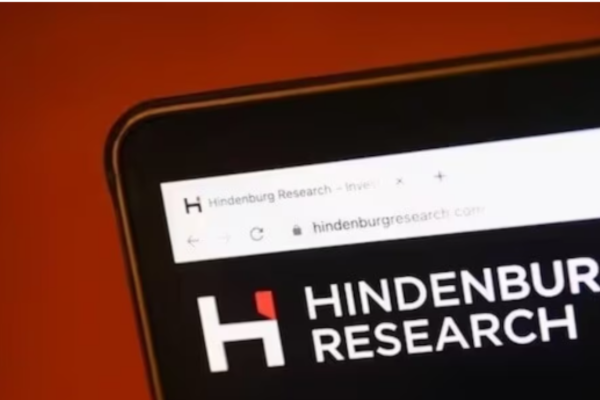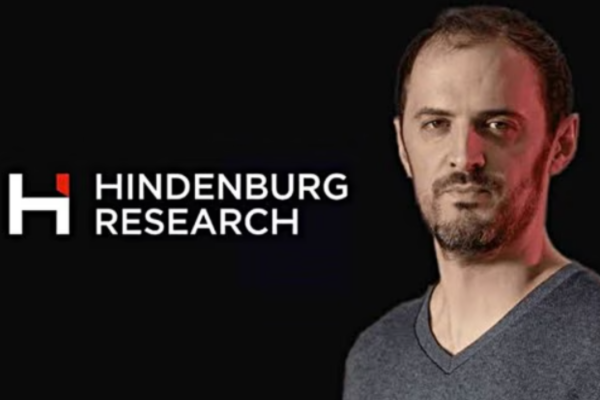kolkata, January 16, 2025 Hindenburg Research (Hindenburg Research Shuts Down Amid Controversy), a U.S.-based investment research firm known for its aggressive short-selling practices and controversial reports, has announced that it is ceasing operations. Founded in 2017 by Nate Anderson, Hindenburg gained notoriety for exposing corporate fraud and financial mismanagement in high-profile companies. Over the years, the firm became a significant player in the financial world, with its reports often leading to substantial market movements.
Table of Contents
Gist on Hindenburg Research Shut Down
- Announcement: Nate Anderson, founder of Hindenburg Research, announced the firm’s shutdown on January 15, 2025.
- Reason for Shutdown: Anderson stated that the firm had completed its pipeline of investigative projects and it’s time to wind up operations.
- Major Impact: Hindenburg Research made headlines for its reports on prominent companies like the Adani Group and Nikola, causing significant financial repercussions for these firms.
- Regulatory Actions: Their investigations led to regulatory actions, resulting in civil and criminal charges for nearly 100 individuals.
- Final Investigations: The last cases involved Ponzi schemes, with details shared with regulators.
- Personal Note: Anderson shared a heartfelt message about the intense work and personal sacrifices made during the journey of Hindenburg Research, leading to his decision to dismantle the firm.
- Firm’s Legacy: Despite the shutdown, Hindenburg’s work significantly impacted corporate accountability and transparency in financial markets.
Background of Hindenburg Research
- Establishment and Founder: Hindenburg Research was established in 2017 by Nate Anderson, a former data scientist and forensic accountant. The firm was named after the infamous Hindenburg disaster, symbolizing its mission to uncover and expose corporate disasters.
- Mission and Approach: The firm’s primary focus was on conducting deep investigative research into companies it suspected of fraud, financial mismanagement, or deceptive practices. Hindenburg was known for publishing detailed reports and taking short positions on the stocks of the companies it investigated.

Notable Cases and Impact
- The Nikola Corporation Case: In September 2020, Hindenburg published a report accusing electric truck maker Nikola Corporation of fraud. The report alleged that Nikola’s founder, Trevor Milton, had made false statements about the company’s technology. The accusations led to a significant drop in Nikola’s stock price and increased regulatory scrutiny.
- Adani Group Allegations: In 2023, Hindenburg released a report accusing the Indian conglomerate Adani Group of stock manipulation and accounting fraud. The report led to a sharp decline in Adani Group’s stock prices, although they later recovered. This case sparked widespread debates about corporate governance and the role of short-sellers in the market.
- Other High-Profile Investigations: Over the years, Hindenburg investigated several other companies, including Clover Health, Lordstown Motors, and Wags Capital. Each report generated significant media attention and had substantial impacts on the respective companies’ market valuations.
Controversies and Criticisms/Hindenburg Research Shuts Down Amid Controversy
- Aggressive Tactics: Hindenburg’s approach to short-selling and publishing scathing reports was often criticized as overly aggressive and predatory. Critics argued that the firm’s tactics could destabilize markets and harm investors.
- Ethical and Legal Debates: The firm’s methods led to ethical and legal debates about the role of short-sellers in the financial markets. While some praised Hindenburg for uncovering fraud and protecting investors, others accused the firm of manipulating the market for its own gain.
- Lack of Transparency: Hindenburg faced criticism for its lack of transparency regarding its research methods and financial interests. Some market participants questioned the firm’s motivations and the accuracy of its reports.
The Final Investigation and Shutdown/Hindenburg Research Shuts Down Amid Controversy
- Investigation into Wags Capital: Hindenburg’s final investigation was into Wags Capital, a private equity firm. The details of this investigation have not been fully disclosed, but it marked the end of Hindenburg’s controversial yet impactful journey.
- Announcement of Shutdown: On January 15, 2025, Nate Anderson announced that Hindenburg Research would cease operations. In a statement, Anderson said, “We shook some empires that we felt needed shaking,” highlighting the significant impact of their work. He also mentioned that financial unviability and regulatory pressures were key factors in the decision to shut down the firm.
Legacy and Impact
- Regulatory Actions: Hindenburg’s work led to nearly 100 individuals being charged civilly or criminally by regulators. The firm’s investigations prompted regulatory agencies to take action against companies engaging in fraudulent or deceptive practices.
- Market Influence: Hindenburg’s reports often caused significant market movements, with stocks of targeted companies experiencing sharp declines. The firm’s influence on the market was a testament to the power of investigative research in the financial world.
- Debate on Short-Selling: Hindenburg’s operations sparked a broader debate on the role of short-selling in financial markets. Supporters argued that short sellers play a crucial role in uncovering fraud and ensuring market integrity. Critics, however, contended that the practice could be abused to manipulate stock prices and create unnecessary volatility.
- End of an Era: The shutdown of Hindenburg Research marks the end of an era in the world of financial investigations. While the firm’s methods were controversial, its impact on corporate accountability and market transparency cannot be denied.
- Ongoing Discussions: As the financial community reflects on Hindenburg’s legacy, discussions about the ethics and motivations behind short-selling continue. The firm’s sudden shutdown has left a lasting impression on the industry, prompting a re-evaluation of the role and responsibilities of short-sellers.
Conclusion
In conclusion, Hindenburg Research’s decision to shut down amid controversy has brought to light the complex and often contentious nature of short-selling and investigative research. While the firm exposed significant corporate frauds, its aggressive tactics and lack of transparency also raised important ethical and legal questions. As the financial world moves forward, the legacy of Hindenburg Research will serve as a reminder of the delicate balance between market integrity and the pursuit of profit.

